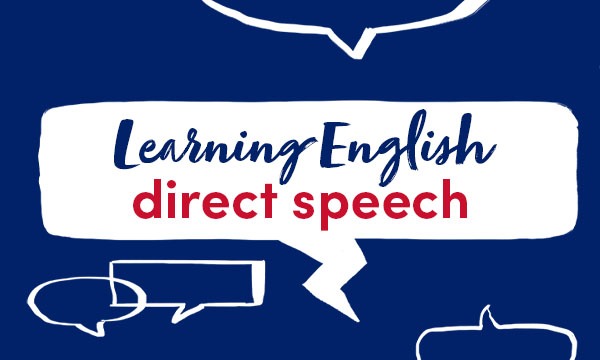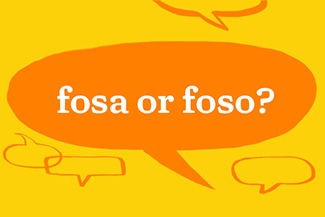
Direct speech gives the actual words that a speaker has used. It is common in novels and other writing where the actual words of a speaker are quoted.
The reporting verb may come before the words that were actually spoken, or after them, or at a natural pause inside the reported sentence.
Monica said, ‘There is nothing we can do about it.’
‘There is nothing we can do about it,’ Monica said.
‘It’s no good,’ Monica said, ‘we’ll just have to ask for help.’
The comma comes inside the quotation marks, unless the reporting verb is positioned inside a reported sentence that itself does not require a comma.
‘There is’, Monica said, ‘nothing we can do about it.’
Typical reporting verbs are: agree, answer, ask, inquire, explain, say, tell, and wonder. The subject and the reporting verb are sometimes reversed.
‘There is nothing we can do about it,’ said Monica.
The actual words spoken always begin with a capital letter, unless the reporting verb comes within a sentence. They are separated from the reporting verb by a comma, unless they are followed by a question mark or an exclamation.
‘Why did you do it?’ she asked.
‘Oh, mind your own business!’ he snapped.
The words spoken are enclosed in inverted commas (single or double quotation marks).
‘Have you been to the new shopping mall yet?’ enquired Shona.
“I’ve already seen it,” John replied.
Single quotation marks are often used to draw attention to a word that is being mentioned for a particular purpose.
There is no such word as ‘fubber’.
He called me a ‘stubborn old goat’.
For further information on English Grammar, visit: https://grammar.collinsdictionary.com/easy-learning
Come back for other blogs on using English in everyday situations:
https://blog.collinsdictionary.com/language-learners/learning-english
All opinions expressed on this blog are those of the individual writers, and do not necessarily reflect the opinions or policies of Collins, or its parent company, HarperCollins.



